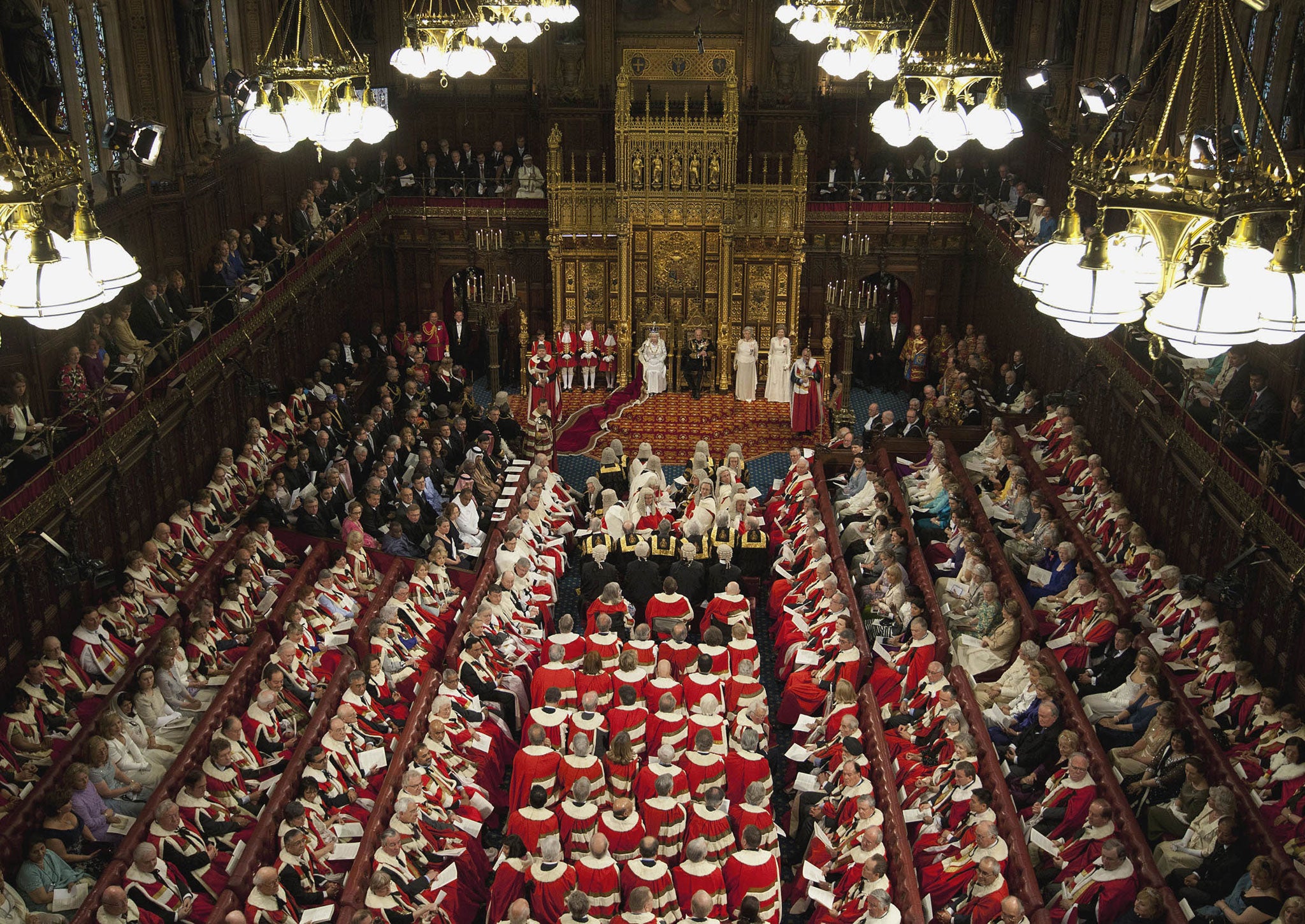Support Lords reform. But you won’t like it
Give too much power to the Lords and it would be able to challenge Government

Rarely has a government announcement been greeted with such widespread disapproval. It had seemed a routine matter: some new Life Peers. They had seemed to be routine characters: the sort of people whom governments have been sending to the Lords over the years. The ones I know – all of them Tories, oddly enough – range from the sound to the outstanding. Some of them will make an important contribution to their Lordships’ proceedings.
So why all the fuss? In part, it arises from the low esteem in which politicians are currently held. In view of that, the call for an elected House of Lords might seem odd. How could anyone prevent such a body from becoming a Commons’ second XI? Elections only work when there is sustained public demand for them. In the UK, the march towards universal suffrage was inspired by the drums and trumpets of popular agitation, which sometimes led to bloodshed. Compare and contrast with local government, where it is hard to persuade even 40 per cent of the voters to turn up – or with the European Parliament, where the turnout regularly loses its deposit. Did anyone mention elected police commissioners? Like Antaeus, democratic institutions draw their strength from the soil.
That said, there is one argument for a substantially-elected Second Chamber, but it has nothing to do with resentment towards the beneficiaries of patronage. It is a method of reforming the Commons. Bismarck said that if you want to enjoy a sausage, it is best not to know what went into it. In modern times, the Commons has always had elements of a legislative sausage factory, but in recent years, that has intensified. MPs have lost power to Whips, Europe, devolved Assemblies and Parliaments, and to the judges. As power ebbed, so did prestige. Most MPs are decent, hard-working people who came into public life because they wanted to improve the way we were governed. On the Tory side, most of them are making financial sacrifices to stay in Parliament. Yet it is hard to persuade the public of these self-evident truths.
But a powerful second chamber, half-elected and half drawn from persons of distinction, would be able to challenge the Commons and the Government. This might force MPs to be more assertive. There would be an obvious consequence: weaker government. Poul Schluter, the then Danish Prime Minister, once said to Mrs Thatcher: “Margaret, I’d give anything for just one year of the power you enjoy under your system.” The reply was instant, and predictable. “Ten years is better, Poul.” If there were ever an upper chamber which could claim a substantial electoral mandate, those days would be over.
So there is a clear choice. If you would prefer a weaker government with the constant likelihood of gridlock between the two chambers, in which the Government could no longer simply draw up a legislative programme and tell the Whips to deliver it: in which there was constant recourse to cajoling and compromise – support reform. But if you believe that governments ought to be able to enforce their will: if, to paraphrase Lord Reith, you wish to see elective dictatorship tempered by electoral assassination – leave well alone.
In that second case, you would still have to decide on the composition of the House of Lords. You would want it to be able to obstruct the Government, to ask ministers whether they were sure that they were right, to force them to take account of inconvenient points that had been made in high-quality debates. You might give it powers to delay Bills. But ultimately, if the Government were set on an important objective, it would prevail.
As for the Peers, there is a lot to be said for retired Ministers, who would be at their most effective when they moved beyond the tribalism of the lower chamber and considered issues on their merits. You might recruit senior civil servants, diplomats and military men, who will have acquired wisdom during their long decades of service. The Law Lords would be crucial. Successful businessmen would also be useful, as might the occasional trade unionist, plus persons of great academic distinction.
This is an old country, and the land is vital to our well-being. So it would be helpful to summon those who represent land and history. Fortunately, they are easy to identify. We have a hereditary peerage, whose families have been bound up with land and our history. Their presence would have a further advantage. A House of Lords in which so many peers owe their position to their ancestry would be in no position to launch a fundamental challenge to the Commons.
Does all this arouse nostalgia? It ought to, because we had such a system until 1997. But Tony Blair could not bear the thought of hereditary legislators. Change was forced through, even though the Government had no idea what to do next. Mr Blair would have preferred an entirely nominated House. Fortunately, he found no supporters. Letting Tony Blair and his crony Charlie Falconer loose on the constitution was as wise as inviting a pack of toddlers to romp in the crockery cupboard. We are still sweeping up the wreckage.
On a good day, the current House of Lords has many of the qualities of the pre-Blairite one. There is surely a powerful case for insisting that there should be no further attempts at reform unless and until those responsible know exactly what they are doing, and why.

Join our commenting forum
Join thought-provoking conversations, follow other Independent readers and see their replies